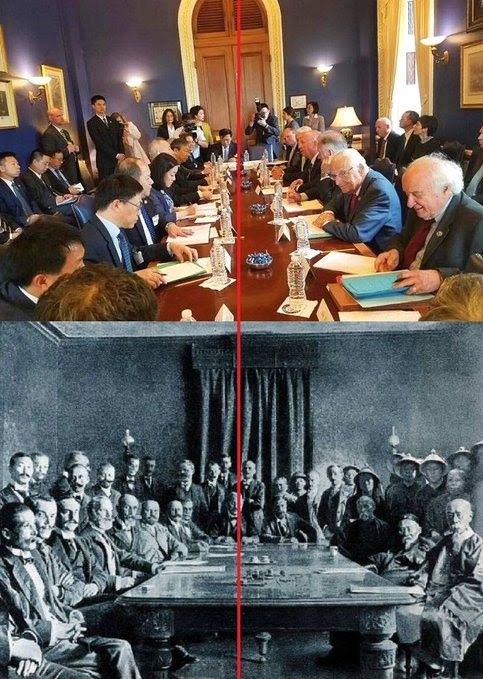These two images — one from the end of the Boxer Rebellion in 1901 and another from a meeting between Chinese trade officials and members of Congress last week — show the change in relative ages of US and Chinese delegations in high-stakes talks more than a century apart. The side-by-side meme, which went viral in China and then globally over the past few days, seems to reflect one of the emerging narratives of our time: China, the rising star, turning the tables on a graying US hegemony.
But hold on: which country is actually graying faster? China, in fact.
Just this week, Bloomberg reported that Beijing — worried about too many graybeards and not enough young workers to support them — may lift the two-child-per-family limit it put in place after the end of its infamous one-child policy a few years back. A reminder that things aren’t always as black and white (or young and old) as they appear.
